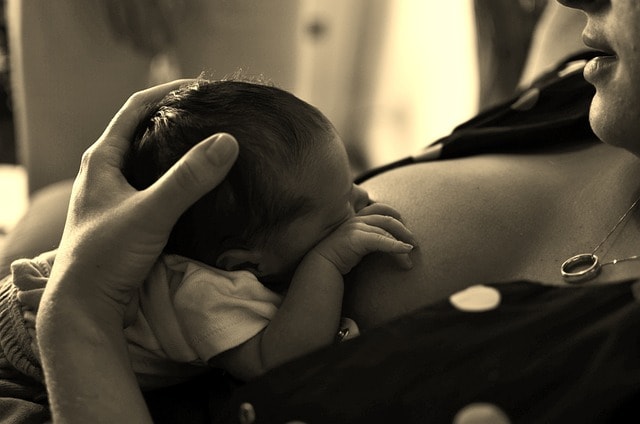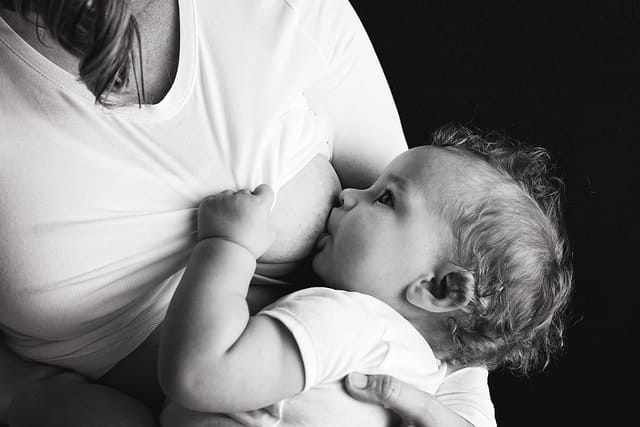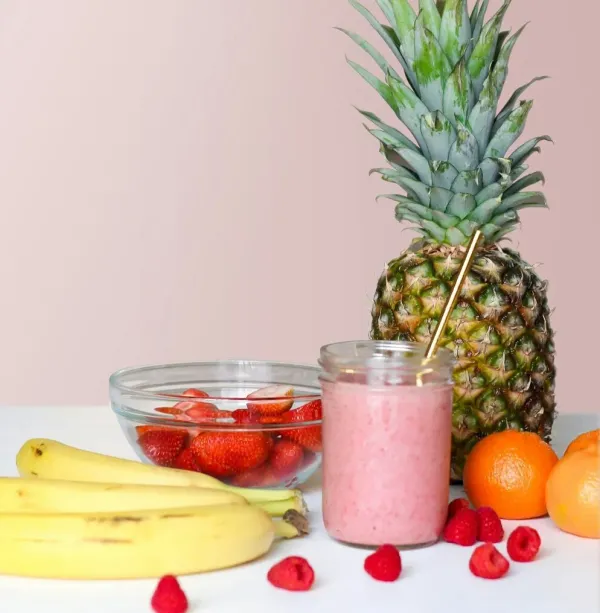Guide to Calories for Breastfeeding: Boost Your Milk Supply and Nutrition

Understanding Breast Milk and Calories
Breast milk is called the perfect food for babies because it has all the nutrients needed for a baby’s growth and development. It’s also protective, against infections and allergies. Breast milk is rich and easy to digest, perfect for newborns and infants.
100 grams of human breast milk has around 70 kcal, enough for a baby’s daily activities and growth. For mothers breastfeeding twins or triplets, milk production can be a lot, a healthy woman can produce 2,000 to 3,000 grams of milk a day. That’s why it’s important to have a balanced diet to ensure milk supply.
In summary, breast milk is vital for a baby’s health and production needs a lot of energy and nutrients from the mother. So knowing the caloric content and nutritional value of breast milk is for both baby and mother.
How Many Calories Do I Need While Breastfeeding?
The number of calories you need while breastfeeding varies depending on several factors, including stage of lactation, activity level and basal metabolic rate. In the early stages of lactation, especially with exclusive breastfeeding, the body burns a lot of energy to make breast milk.
According to the Dietary Guidelines for Americans, a healthy lactating woman needs an extra 450-500 calories a day to support milk production. But when breastfeeding exclusively, the energy expenditure goes up even more, burning 500-670 extra calories a day. That’s like a 45 minute run a day.
So breastfeeding mamas need to make sure they are getting enough calories to support milk production and overall health. Calorie intake + physical activity + nutrient dense food = meeting those extra energy needs.
Use our calculator to calculate your total daily energy expenditure while breastfeeding:
References on the data the calculator is based:

Nutrition for Breastfeeding and Milk Supply
To support milk production and overall health while breastfeeding you need to focus on eating nutrient dense foods. These foods provide the vitamins, minerals and energy to support your health and milk supply.
Key nutrients like iodine, selenium and zinc are important for thyroid health which plays a big role in metabolism and lactation. Having enough of these nutrients means your metabolism will be running smoothly which is key to milk production.
Having “eucaloric” days in your diet - days where you eat enough calories to meet your body’s needs without creating a calorie deficit - can help maintain your metabolism and milk supply. These days stop your body from going into conservation mode where it might start to conserve energy which can impact milk supply.
Using a breastfeeding calorie calculator can be a great way to work out your daily calorie needs based on your activity level, body weight and stage of lactation. Having enough calories is key to your energy levels and being able to produce enough milk for your baby.
The Science Behind Breastfeeding and Weight Loss
Breastfeeding and weight loss requires a delicate balance, as you need to create a calorie deficit for weight loss but can’t cut too many calories or it will impact milk supply. Remember your body is using extra energy to produce milk so you’re already burning more calories than you would if you weren’t breastfeeding.
During breastfeeding hormonal changes can make it harder to lose weight. Prolactin the hormone that makes milk also makes you store fat so it’s harder to lose weight. Cutting too many calories can also signal to your body that it needs to conserve energy and that can lead to a decrease in milk supply.
Research has shown that while lactating women have more energy output due to milk production, their Basal Metabolic Rate (BMR) – the number of calories your body needs at rest – remains the same. So although your body is working harder to produce milk it doesn’t necessarily burn more calories at rest.
When the energy from your diet isn’t enough to meet the needs of your body and milk production your body will start to mobilize tissue stores (like fat reserves) to make up the difference. This can lead to weight loss but make sure you’re not cutting calories so much that it affects your ability to produce enough milk for your baby.
Now you know! 😉 Breastfeeding mums. 👍
Safe Weight Loss While Breastfeeding
When losing weight while breastfeeding you need to do it safely so your milk supply doesn’t drop. Start by cutting calories moderately, aim to reduce by 300-500 calories a day. This small calorie deficit will help you lose weight gradually without compromising your body’s ability to produce milk.
Add exercise to your daily routine, focus on strength exercises to maintain muscle mass. This will help with weight loss and keep your metabolism going. Exercise will also boost your mood and reduce stress which is key to overall wellbeing.
Reduction of stress is another key to safe weight loss. High stress can affect both your weight loss and milk production. Yoga, meditation and getting enough sleep can be very helpful.
Using a breastfeeding calorie calculator can help you set safe weight loss goals for yourself. Losing weight safely while breastfeeding is important as drastic calorie cuts can lead to milk drop. By following these tips you can lose weight and feed your baby.

Tracking calories for breastfeeding calculator
Maximizing Your Milk Supply and Nutrition
Pumping burns the same amount of calories as breastfeeding because milk production requires the same amount of energy, whether you’re nursing directly or using a pump. The process of making milk is what burns the calories, not the method of milk removal. So whether you’re nursing or pumping, your body is using the same amount of energy to make milk.
For a breastfeeding mama, using a calorie calculator can be helpful in determining daily calorie needs. This way she can make sure she’s consuming enough calories for her own health and for milk production. A good milk supply is key to the baby’s growth and development and a good calorie supply is key to maintaining that supply.
Balancing calorie intake with energy expenditure is key to ensuring that the mother remains healthy while providing the necessary nutrients to her baby through breast milk.
Its important to stay aware how many calories you need daily, to simplify the task you may use our FoodIntake app calorie calculator
Frequently Asked Questions:
How many calories do I need?
The number of calories you need while breastfeeding depends on your age, weight, activity level and if you’re exclusive breastfeeding. On average breastfeeding women need an extra 450-500 calories a day to support milk production. This is on top of your usual daily calorie needs based on your basal metabolic rate (BMR) and activity level.
How can I lose weight without losing my milk?
To lose weight without losing your milk focus on moderate calorie reduction (300-500 calories a day) and eat nutrient dense foods. Regular exercise especially strength training will help you maintain muscle mass and boost your metabolism. Lose weight gradually to avoid any impact on your milk production.
How do I calculate my daily calorie needs while breastfeeding?
The best way to calculate your daily calorie needs while breastfeeding is to use your BMR, activity level and the extra calories for milk production. You can do this manually or use an online breastfeeding calorie calculator that takes all these into account to give you a personalized calorie target.
Can I use a breastfeeding calorie calculator?
Yes, a breastfeeding calorie calculator is a great tool to calculate your daily calorie needs. These calculators take into account your age, weight, height, activity level and if you’re exclusive breastfeeding to give you a personalized calorie target for both weight management and milk production.
How much milk do I produce while breastfeeding?
A mother will produce varying amounts of milk but on average a breastfeeding mother will produce about 25-35 ounces (750-1,035ml) of milk a day. Milk production is driven by the baby’s demand so frequent breastfeeding or pumping will help maintain or increase supply.






